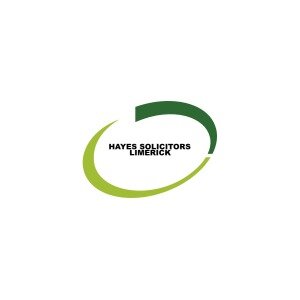Best Energy Regulatory Law Lawyers in Ireland
Share your needs with us, get contacted by law firms.
Free. Takes 2 min.
Or refine your search by selecting a city:
List of the best lawyers in Ireland
About Energy Regulatory Law in Ireland
Energy Regulatory Law in Ireland is a branch of law that focuses on the rules, regulations, and legal mechanisms governing the generation, transmission, distribution, and supply of energy. It covers both traditional sources such as oil, gas, and electricity and renewable sources such as wind and solar. The sector is regulated to ensure security of supply, economic development, environmental protection, and consumer rights. Key activities regulated by this area of law include licensing, pricing, network access, market competition, and compliance with environmental targets set at both national and EU level. The Commission for Regulation of Utilities (CRU) is the principal regulator overseeing these functions in Ireland.
Why You May Need a Lawyer
If you are involved in any aspect of Ireland's energy sector, specialised legal advice can be essential. Common situations where you may require assistance from an Energy Regulatory Law lawyer include:
- Setting up or operating energy production facilities, such as wind farms or solar parks.
- Navigating the complex process of licensing and compliance with regulatory authorities like the CRU.
- Engaging in electricity or gas supply, trading, or distribution.
- Dealing with disputes involving network access, connection agreements, or contractual obligations.
- Complying with environmental and planning law requirements in connection with energy projects.
- Participating in public procurement processes for government energy projects.
- Adapting to changing regulations around renewable energy and sustainability targets.
Whether you are a business, investor, developer, or consumer, a lawyer can help you interpret regulations, manage risks, and ensure compliance, which is vital in this ever-evolving area.
Local Laws Overview
In Ireland, Energy Regulatory Law is shaped by a mixture of national legislation, European Union directives, and regulatory agency rules. Key laws and regulations include:
- Electricity Regulation Act 1999 - Established the legal and regulatory framework for the electricity market and created the Commission for Regulation of Utilities (CRU).
- Gas (Interim Regulation) Act 2002 - Governs the regulation of the natural gas market.
- Renewable Energy Directives - Set binding EU targets for renewable energy production and consumption.
- Energy (Miscellaneous Provisions) Acts - Various laws that update and amend previous regulation in line with EU law and policy shifts.
- Climate Action and Low Carbon Development Acts - Require the long-term reduction of greenhouse gas emissions and have a direct impact on energy policy and projects.
The CRU is responsible for licensing, market regulation, and monitoring compliance. Other relevant bodies include EirGrid (transmission system operator), ESB Networks (distribution system), and the Environmental Protection Agency (EPA) for environmental compliance.
Frequently Asked Questions
What is the role of the Commission for Regulation of Utilities (CRU)?
The CRU is Ireland's independent energy and water regulator, responsible for licensing, regulating pricing, promoting competition, protecting consumers, and ensuring the security of supply across electricity, gas, and water services.
Do I need a licence to generate renewable energy for my own use?
Microgenerators, such as small solar panels or wind turbines for home use, typically do not require a licence, but larger installations may need authorisation from the CRU as well as planning permission from local authorities.
What are the main legal requirements for setting up a wind farm?
Developers must obtain planning permission, an electricity generation licence from the CRU, connection to the grid agreements, and comply with environmental and safety regulations through the EPA and other agencies.
How are electricity prices regulated in Ireland?
While Ireland has a competitive market for electricity supply, the CRU sets tariffs for certain regulated sectors, monitors market behaviour, and has powers to intervene if there are risks to fairness or supply stability.
Who is responsible for the transmission and distribution of electricity?
EirGrid operates the national transmission system, while ESB Networks is responsible for the distribution system. Both are regulated by the CRU.
What support or incentives are available for renewable energy projects?
The Irish government operates several support schemes, including the Renewable Electricity Support Scheme (RESS), which offers financial incentives for eligible renewable energy projects, subject to regulatory approval and compliance.
Are there obligations for energy suppliers regarding renewable energy targets?
Yes, suppliers must comply with EU and national renewable energy targets, report renewable content, and participate in schemes such as Guarantees of Origin for green electricity.
How do energy market participants resolve disputes?
Disputes relating to licensing, grid access, or supply contracts are typically handled by the CRU or through arbitration and in some cases, through the Irish courts, depending on the issue.
What is the role of the Environmental Protection Agency (EPA) in energy projects?
The EPA is responsible for issuing licences for certain activities, enforcing environmental protection laws, and monitoring compliance, especially for large-scale energy production facilities.
How do I stay up to date with changes in energy regulation?
It is important to monitor updates from the CRU, relevant government departments, and legal advisors, as well as participate in industry groups and consult published guidance or newsletters on regulatory changes.
Additional Resources
If you need further information or support in the area of Energy Regulatory Law in Ireland, the following organisations and resources may be useful:
- Commission for Regulation of Utilities (CRU) - The primary regulatory authority for electricity and gas markets.
- Department of the Environment, Climate and Communications - Responsible for national energy policy and legislative updates.
- Environmental Protection Agency (EPA) - Regulates environmental licensing and compliance for energy projects.
- EirGrid - Manages the electricity transmission grid and provides information on grid connection processes.
- SEAI (Sustainable Energy Authority of Ireland) - Provides information on grants, research, and support for renewable energy.
- Industry organisations such as Wind Energy Ireland and the Irish Solar Energy Association can provide guidance and networking opportunities.
Next Steps
If you require legal assistance in Energy Regulatory Law, consider the following steps:
- Gather documents related to your energy activities, such as correspondence with regulators, contracts, planning permissions, and licences.
- Identify the specific issue or challenge you are facing, such as obtaining a licence, resolving a dispute, or planning a new project.
- Contact a solicitor or law firm with experience in energy regulation and environmental law in Ireland. Many legal professionals offer initial consultations to discuss your needs and the potential scope of advice.
- Stay informed about regulatory updates that may affect your project or business. Regularly check the websites of regulatory bodies and sign up for industry newsletters if available.
- If your issue relates to a complaint against a regulated supplier or market participant, you may be able to raise this directly with the CRU or another relevant body for mediation or investigation.
Seeking expert legal counsel will ensure you navigate the regulatory landscape effectively, comply with applicable laws, and protect your interests in Ireland’s evolving and dynamic energy sector.
Lawzana helps you find the best lawyers and law firms in Ireland through a curated and pre-screened list of qualified legal professionals. Our platform offers rankings and detailed profiles of attorneys and law firms, allowing you to compare based on practice areas, including Energy Regulatory Law, experience, and client feedback.
Each profile includes a description of the firm's areas of practice, client reviews, team members and partners, year of establishment, spoken languages, office locations, contact information, social media presence, and any published articles or resources. Most firms on our platform speak English and are experienced in both local and international legal matters.
Get a quote from top-rated law firms in Ireland — quickly, securely, and without unnecessary hassle.
Disclaimer:
The information provided on this page is for general informational purposes only and does not constitute legal advice. While we strive to ensure the accuracy and relevance of the content, legal information may change over time, and interpretations of the law can vary. You should always consult with a qualified legal professional for advice specific to your situation.
We disclaim all liability for actions taken or not taken based on the content of this page. If you believe any information is incorrect or outdated, please contact us, and we will review and update it where appropriate.
Browse energy regulatory law law firms by city in Ireland
Refine your search by selecting a city.
















